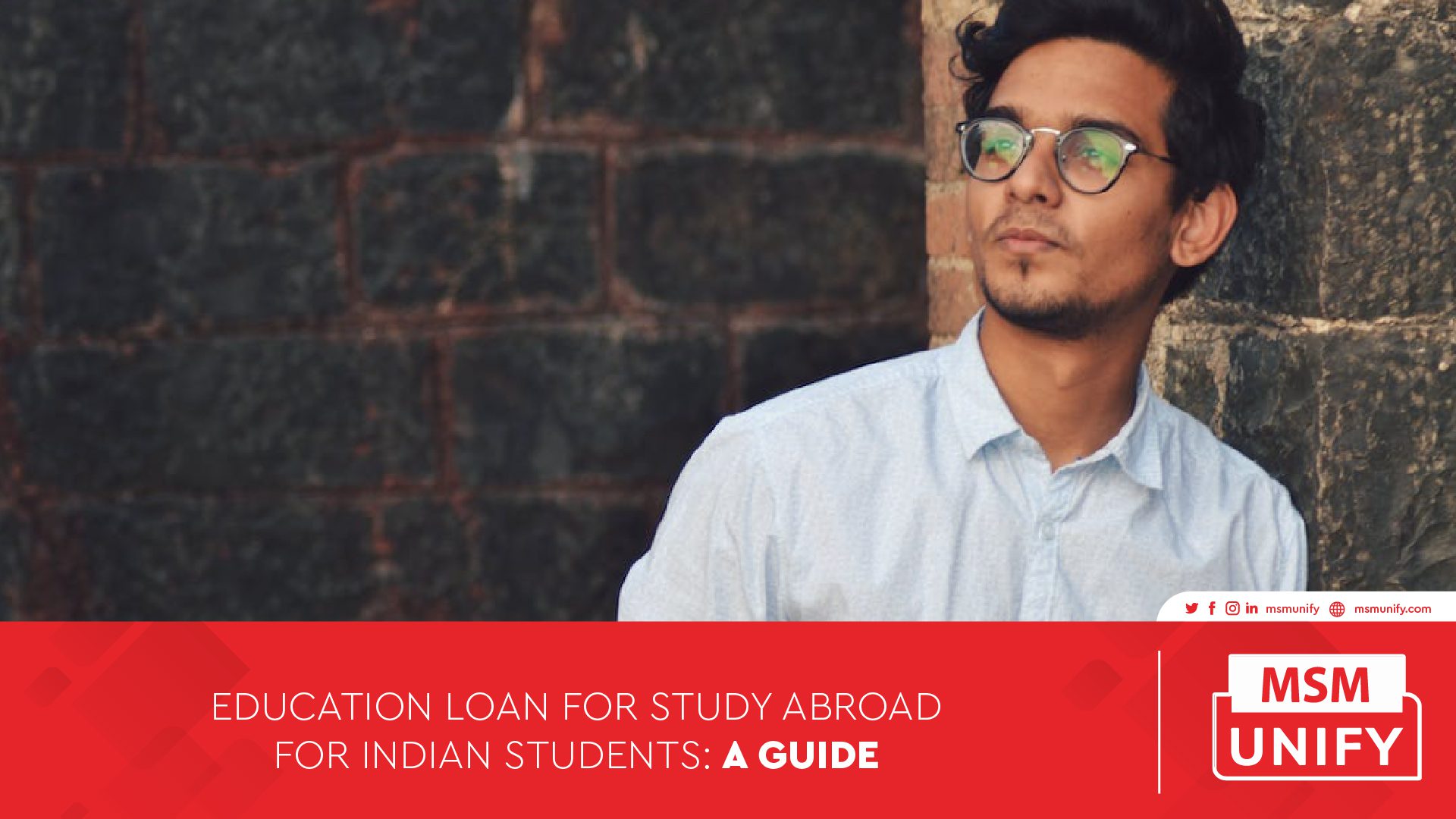Education loans are a popular option for Indian students who wish to study abroad but lack the financial resources to do so. Many banks and financial institutions in India offer education loans specifically for students who wish to pursue higher education abroad.
The education loan in India for studying abroad is usually offered at a lower interest rate than personal loans and can be used to cover the cost of tuition, accommodation, and other expenses associated with studying abroad. Some loans also provide for a moratorium period, during which the repayment of the loan is deferred, usually until the completion of the course or six months after getting a job, whichever is earlier.
Read on as MSM Unify discusses education loan in India for study abroad and the best education loan in India for study abroad.
Education Loan Criteria
To be eligible for an education loan for studying abroad, students typically need to meet certain criteria, such as having a good credit score and a co-signer, usually a parent or guardian, who can vouch for the student’s ability to repay the loan.
The criteria for education loans for Indian students vary depending on the bank or financial institution offering the loan. However, some common criteria that students typically need to meet include:
- Eligible courses: Most banks and financial institutions only provide education loans for specific types of courses, such as undergraduate, postgraduate, and vocational courses.
- Credit score: Students may also be required to have a good credit score to be eligible for an education loan.
- Income: Banks and financial entities may have different income requirements, but generally, students or their parents/guardians should have a stable income to be eligible for an education loan.
- Collateral: Some banks may ask students to provide collateral, such as property, to secure the loan.
- Co-signer: As previously said, many financial institutions require students to have a co-signer, usually a parent or guardian, who can vouch for the student’s ability to repay the loan.
- Proof of Admission: Most banks and financial institutions require students to provide proof of admission to an accredited institution abroad.
- Supporting documents: Students may also be requested to provide additional supporting documents such as financial statements and income tax returns.
- Repayment capacity: A student’s and co-signer’s repayment capacity will also be considered to ensure they are able to repay the loan.
- Course and college reputation: Some banks and financial institutions may have a list of approved institutions and courses, and may not provide loans for institutions and courses that are not on the list.
The Best Education Loan for Indian Students
There are several education loans available for Indian students who wish to study abroad, and the best loan for you will depend on your specific needs and circumstances. Some of the best education loans in India for studying abroad include:
State Bank of India (SBI) Global Ed-Vantage Scheme
This loan is offered by the State Bank of India for Indian students who wish to study abroad. It provides loans up to Rs 20 lakhs for graduation and post-graduation courses, and up to Rs 30 lakhs for vocational and technical courses.
Axis Bank Education Loan
Axis Bank offers education loans for Indian students who wish to study abroad, with loan amounts of up to Rs 1 crore. The bank offers flexible repayment options and competitive interest rates.
HDFC Credila
HDFC Credila is a subsidiary of HDFC Bank and offers education loans for Indian students who wish to study abroad. It provides loans up to Rs 1 crore and has a flexible repayment structure.
ICICI Bank Global Education Loan
ICICI Bank offers education loans for Indian students who wish to study abroad, with loan amounts of up to Rs 20 lakhs. The bank offers competitive interest rates and a flexible repayment structure.
These are some of the popular education loan options available for Indian students, however, it’s important to compare interest rates and terms offered by different banks and financial institutions and choose the one that best fits your needs and circumstances.
It’s also important to consider that an education loan comes with a repayment period, and the student will have to start repaying the loan after the moratorium period. Therefore, it’s important to consider how you plan to repay the loan and if it is feasible for your future financial situation.
It’s recommended to shop around and compare interest rates and terms offered by different banks and financial institutions before applying for an education loan. It’s also important to read and understand the terms and conditions of the loan before signing the loan agreement.
Getting an education loan in India to study abroad is a wise decision, but having one also holds a lot of responsibility on your part. Learn what you should do to maintain the loan and repay it once your education is finished. Also, knowing which education loan in India for study abroad without collateral is perfect for you.
Gather more information about these loans and even study programs, culture, cuisine, etiquette, and more. Browse through MSM Unify to get started.












